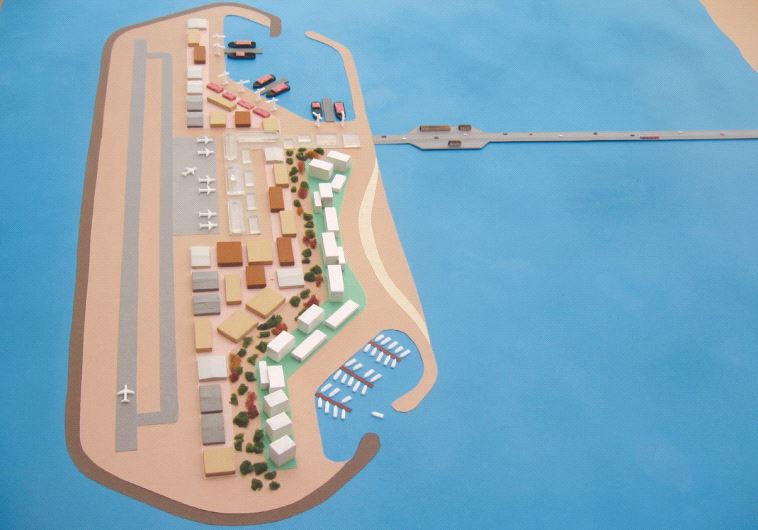Gaza’s game-changer?
Transportation Minister Israel Katz outlines his port plan, and how close it is to being realized, in an exclusive interview with the ‘Post’.
 A MODEL of the proposed artificial island port that might be built off the Gaza shore.(photo credit: TRANSPORATION MINISTRY)Updated:
A MODEL of the proposed artificial island port that might be built off the Gaza shore.(photo credit: TRANSPORATION MINISTRY)Updated: